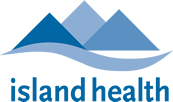Medication Safety Rotation
| Rotation Details | Rotation Specific Information (click to download below) |
|---|---|
| Rotation Type | Non-Direct Patient Care (Non-DPC) |
| Rotation Duration | 1 Week |
| Rotation Locations | Vancouver Island |
| Click to Download Rotation Specific ROAD as PDF | Medication-Safety-Rotation-2023.pdf |
| Click to Download Rotation Specific ROAD as MS Word Document | Medication-Safety-Rotation-2023.docx |
| Click to Download Rotation Readings as MS Word Document (with links) | Medication-Safety-Rotation-Readings-2023.docx |
| Click to Download Rotation Readings & Resources as MS Word Document (with links) | Medication-Safety-Rotation-Readings-Resources-2023.docx |
| Click to Download Medication Safety Assessment Form (ITAR) | Medication-Safety-ITAR-2023.pdf |
rotation description
The Institute for Safe Medication Practices (ISMP) defines medication safety as “Freedom from preventable harm with medication use.” Errors occurring at various points in the medication use system can result in patient harm and have a negative effect on the person making the error.
The aim of medication safety is to make the medication use process safer with a focus on systems. Medication safety is guided by external organization such as ISMP and Accreditation Canada and internal factors such as trends in patient safety events and concerns brought forward by Island Health staff and quality committees. System oriented interventions such as automation are more effective than human oriented interventions such as education.
Communication is often a weak link in the system. The culture of safety within an organization is important and effects the reporting of errors. High risk medications carry an increased risk of causing significant patient harm if used in error and special control factors are put into place to prevent errors with these medications. Policies and Procedures support safe medication practices and automation can improve system-based causes of errors. A clinical pharmacist can do much to increase the safety of the patients they are caring for and help raise the awareness of medication safety issues with other health care professionals.
The Medication Safety rotation is a one-week rotation that provides the Pharmacy Resident with training and experience with medication safety issues common in a hospital setting. The rotation is virtual and time will be divided between didactic teaching, observation and participation in mediation safety-related meetings, and work on specific medication safety initiatives. The resident will have an opportunity to meet with the preceptor daily. The resident will be provided with informal feedback during the rotation and a formal rotation evaluation will be completed at the end of the week.
Communication is often a weak link in the system. The culture of safety within an organization is important and effects the reporting of errors. High risk medications carry an increased risk of causing significant patient harm if used in error and special control factors are put into place to prevent errors with these medications. Policies and Procedures support safe medication practices and automation can improve system-based causes of errors. A clinical pharmacist can do much to increase the safety of the patients they are caring for and help raise the awareness of medication safety issues with other health care professionals.
The Medication Safety rotation is a one-week rotation that provides the Pharmacy Resident with training and experience with medication safety issues common in a hospital setting. The rotation is virtual and time will be divided between didactic teaching, observation and participation in mediation safety-related meetings, and work on specific medication safety initiatives. The resident will have an opportunity to meet with the preceptor daily. The resident will be provided with informal feedback during the rotation and a formal rotation evaluation will be completed at the end of the week.












